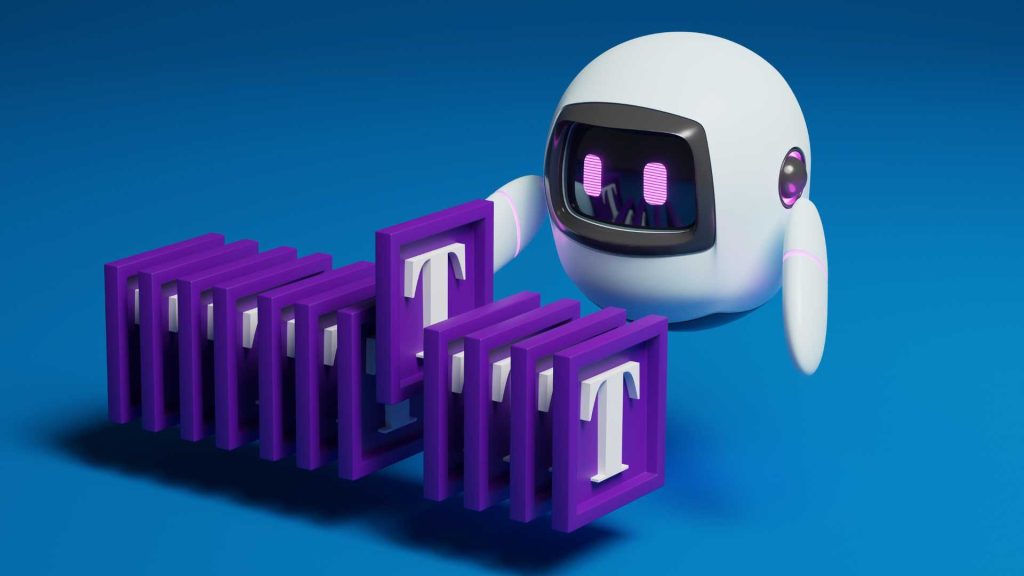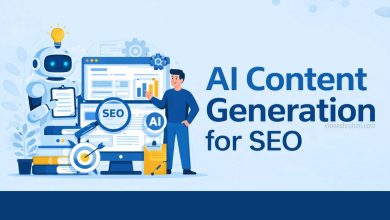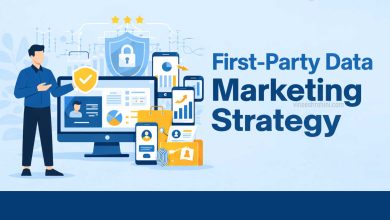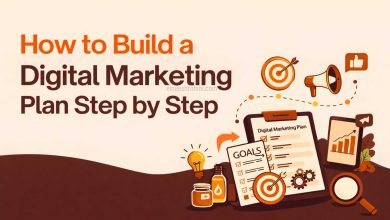AI in Content Marketing – Tools and Strategies : Comprehensive Guide 2025
AI in Content Marketing : In 2025, Artificial Intelligence (AI) is not just an emerging trend in content marketing—it’s the driving force behind many of the most successful content strategies. As consumer behavior shifts towards hyper-personalized, real-time experiences and as competition for online visibility intensifies, AI is transforming how brands ideate, create, distribute, optimize, and analyze content.
Table of Contents
This comprehensive guide explores how AI is revolutionizing content marketing, the best tools to use, and strategic implementations for businesses and creators looking to stay ahead in 2025.
🔹 What is AI in Content Marketing?
AI in content marketing refers to the application of machine learning algorithms, natural language processing (NLP), and data analytics tools to automate and enhance content-related tasks.
Also Read : Best 5 AI Tools for Digital Marketing – 2025
These include content ideation, creation, distribution, personalization, optimization, and performance measurement.
With AI, marketers can now:
- Generate content at scale
- Optimize SEO and keyword usage
- Personalize user experiences
- Analyze content performance
- Automate publishing and scheduling
🔹 Why AI Matters in 2025

In 2025, content saturation is at an all-time high. Google alone indexes billions of pages, and users are bombarded with content across platforms. AI helps cut through this noise by:
- Delivering relevant content at the right time
- Enhancing engagement through personalization
- Improving SEO rankings with intelligent optimization
- Saving time and resources by automating repetitive tasks
Marketers who effectively integrate AI tools into their strategies are experiencing higher ROI, better audience retention, and more agile content operations.
🔹 Top AI-Powered Tools for Content Marketing in 2025
Let’s dive into the best tools that are shaping AI-driven content marketing strategies this year:
1. ChatGPT by OpenAI
- Use Case: Blog writing, ad copy, social media posts, product descriptions
- Why It’s Great: Offers conversational and context-aware writing that mimics human tone
2. Jasper AI
- Use Case: Long-form content, sales pages, email copy
- Strengths: Templates for specific formats, Boss Mode for faster output
3. SurferSEO
- Use Case: SEO-focused content creation and on-page optimization
- Integration: Works with AI writers to ensure SEO-friendly output
4. Copy.ai
- Use Case: Product descriptions, email copy, headlines
- Features: Quick idea generation, team collaboration tools
5. GrammarlyGO
- Use Case: AI-based grammar correction and tone adjustment
- Highlights: Real-time editing with contextual awareness
6. MarketMuse
- Use Case: Content audit, topic modeling, SEO planning
- AI Strength: Helps identify content gaps and rank opportunities
7. HubSpot AI Tools
- Use Case: Automated blog outlines, chatbot content, email campaigns
- Advantage: Integrated into CRM for personalization
8. Canva Magic Write
- Use Case: Social content, graphics copy, visual storytelling
- AI Edge: Combine design and AI-powered text in one platform
9. Writesonic
- Use Case: Articles, social media, product descriptions
- Specialty: Fast content generation and multilingual capabilities
10. Clearscope
- Use Case: Content optimization for SEO
- Features: Keyword analysis, readability score, competitor analysis
🔹 AI Content Marketing Strategies That Work
To leverage AI in your content marketing efforts, a strategy is essential. Here are the most effective ways to integrate AI tools into your workflow:
✅ 1. AI for Content Ideation
- Use AI tools like ChatGPT, Jasper, or Copy.ai to generate topic ideas based on audience interests, trending keywords, and industry gaps.
- Platforms like BuzzSumo combined with AI can identify trending content in your niche.
✅ 2. AI for Keyword and SEO Optimization
- Tools like SurferSEO and Clearscope analyze top-ranking content and suggest keyword density, structure, and topic coverage.
- Use MarketMuse for semantic SEO and content depth analysis.
✅ 3. AI for Personalization
- AI systems integrated into CRM (like HubSpot or Salesforce) help tailor content based on user behavior, preferences, and funnel stage.
- Personalized email content generated via AI leads to higher open and click-through rates.
✅ 4. AI in Visual Content and Design
- Tools like Canva Magic Write and Adobe Firefly generate visual content ideas and compelling copy.
- Use AI to design infographics, social media posts, and presentations in minutes.
✅ 5. AI for Content Creation at Scale

- For businesses managing large-scale content production (blogs, newsletters, ads), AI enables speed without sacrificing quality.
- Combine AI with human editing for brand voice and credibility.
✅ 6. AI-Powered Content Distribution
- Platforms like Buffer and CoSchedule use AI to determine best publishing times.
- Use AI to automate reposting and resharing across channels based on engagement data.
✅ 7. AI in Performance Analytics
- Use AI tools to track which content pieces drive the most conversions.
- Tools like Google Analytics 4 and HubSpot provide AI-driven insights on user flow, bounce rates, and engagement patterns.
🔹 Best Practices for Implementing AI in Content Marketing
- Start Small: Begin with one or two AI tools that solve a specific bottleneck.
- Train Your Team: Educate your content team on how to use AI tools effectively.
- Maintain Human Oversight: AI assists but doesn’t replace human creativity, tone, and brand values.
- Test and Optimize: Continuously A/B test AI-generated content and refine outputs.
- Stay Ethical: Avoid misleading content, deepfakes, or over-automation that harms trust.
🔹 Challenges and Risks of AI in Content Marketing
While AI offers immense benefits, it comes with challenges:
- Plagiarism Risks: Ensure originality with plagiarism checkers.
- Generic Content: Without supervision, AI can produce bland or inaccurate information.
- SEO Penalties: Google may penalize low-quality AI-generated spam.
- Privacy Concerns: Use AI responsibly with consumer data.
🔹 Future Trends in AI Content Marketing (Beyond 2025)
- Voice Content Optimization for AI assistants and smart devices
- AI-generated Video Scripts and automated video editing
- Hyper-Personalization using predictive AI models
- AI-Powered Content Monetization strategies
- Multilingual Content Creation at scale
🔹 Conclusion

AI in content marketing is not a passing trend—it’s the future of how brands connect with audiences. In 2025, mastering the use of AI-powered tools and strategies gives marketers a competitive edge by saving time, boosting ROI, and creating more engaging, data-driven content.
Buy Now : Ecommerce Website With 100 Products
By combining human creativity with AI efficiency, content marketers can achieve scale, personalization, and performance like never before.
Disclaimer: This guide is intended for informational purposes only. The use of AI tools should comply with copyright, data protection, and content quality standards in your jurisdiction.



